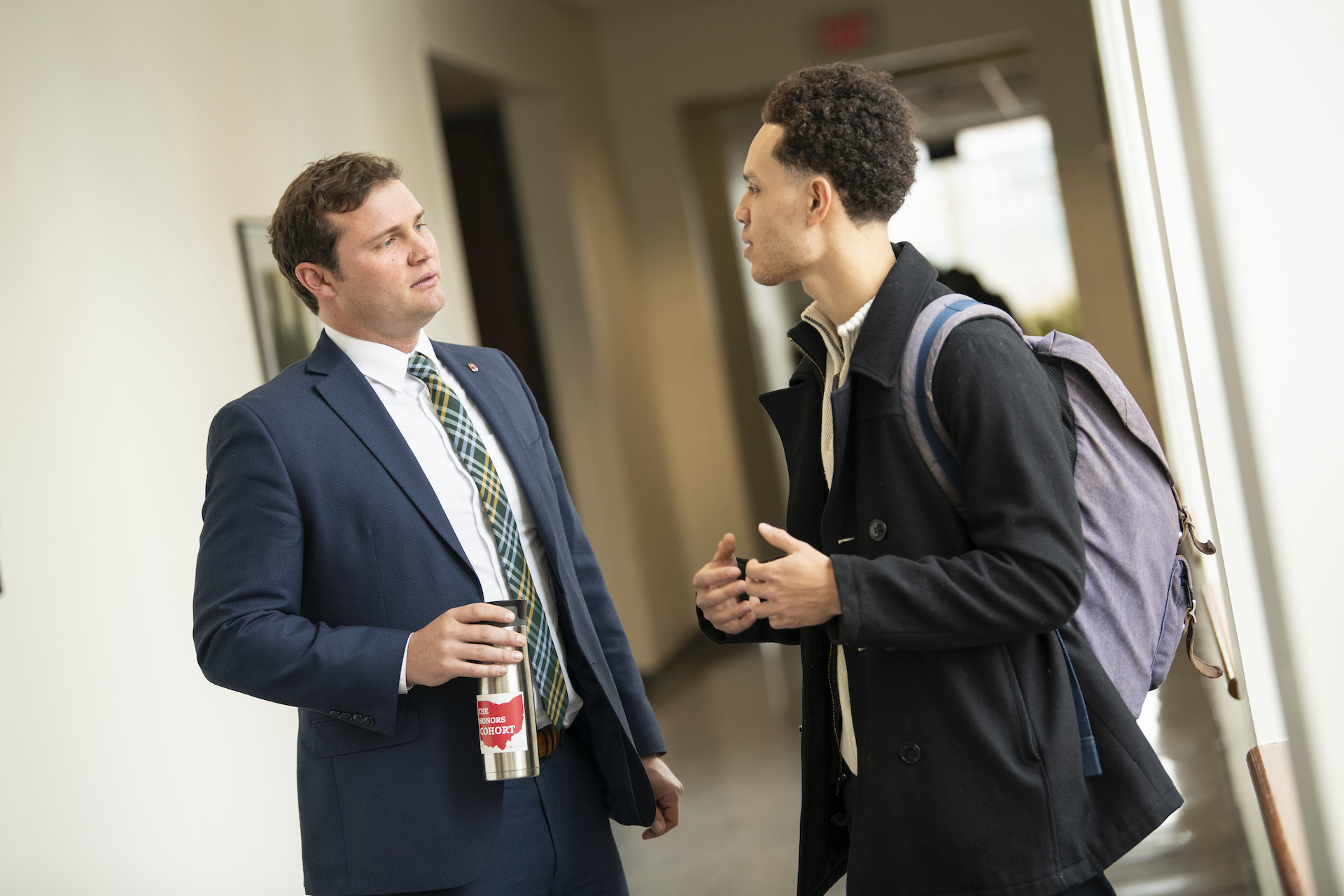
Sexual Misconduct and Title IX
Title IX in the Office of Institutional Equity
We support victims of
- Sexual assault
- Sexual harassment
- Domestic/dating violence
- Stalking
- Sex-based discrimination
- Pregnancy discrimination
Ohio State’s non-discrimination notice
The university is committed to equal opportunity and eliminating discrimination. This commitment is both a moral imperative consistent with an intellectual community that celebrates individual differences and diversity, as well as a matter of law. Ohio State does not discriminate on the basis of age, ancestry, color, disability, gender identity or expression, genetic information, HIV/AIDS status, military status, national origin, race, religion, sex, gender, sexual orientation, pregnancy, or veteran status in its programs, activities, employment and admission.
Contact
For Title IX questions or concerns, please contact Title IX Coordinator Melissa Mayhan: titleIX@osu.edu or 614-247-5838.









